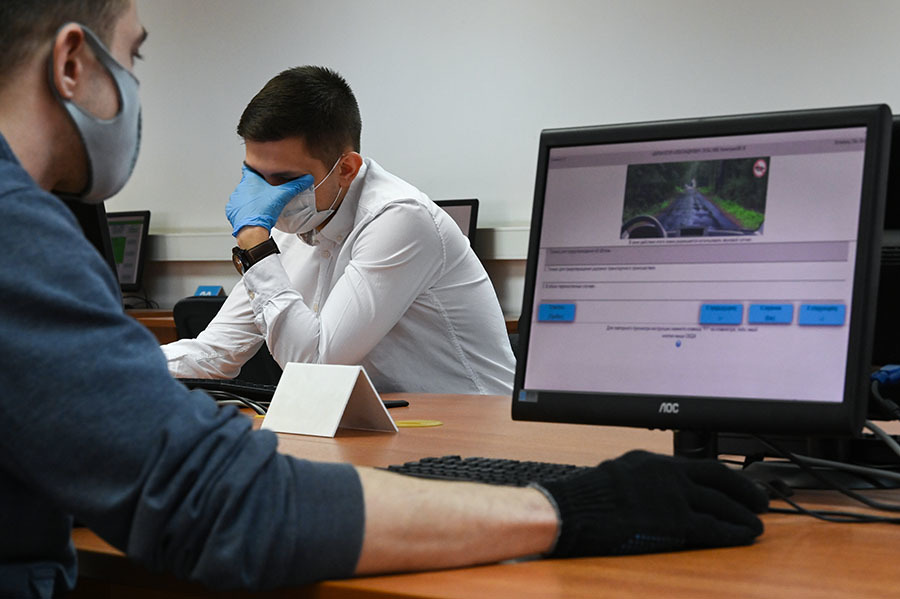In Russia, from April 1, changes will come into force in the procedure for conducting exams for the right to drive vehicles and issuing driver's licenses.
This was reported on the website of the State Traffic Inspectorate.
It is noted that "the key change here will be that the test of the initial driving skills in closed areas in the format of a separate exam will no longer be carried out."
“Employees of the State Traffic Inspectorate will give an objective assessment of the readiness of future drivers to drive a vehicle exclusively in real traffic conditions,” the message says.
It is noted that this paragraph of innovations concerns the passing of exams for the right to drive cars and trucks, as well as buses and compound vehicles.
The practical test for motorcyclists will remain the same.
The list of errors and violations has also changed, for which, as before, penalty points are provided.
Errors and violations are divided into subgroups of one, two or three penalty points, depending on the degree of impact on traffic safety.
Gross mistakes, in the commission of which the exam will end immediately, are placed in a separate block.
“For example, the reason for the termination of the practical exam will be the situation when the candidate does not wear a seat belt or will use the phone while driving,” the department explained.
In addition, it will be possible for observers to be present in the car during the exam.
In this capacity, there can be other candidates for drivers awaiting their turn for the exam, as well as representatives of public organizations and driving schools.
Men during the theoretical examination for the right to drive category B vehicles at the Strogino traffic police in Moscow
RIA News
© Maxim Blinov
As noted in the traffic police, the participation of observers will help to improve the transparency of the exam and resolve possible disputes.
In addition, the department noted that the upcoming changes affect the interests of a wide range of the public and are actively discussed in the media.
Along with this, the traffic police said, on the Internet and social networks "a lot of unreliable information is being disseminated, distorting the meaning and content of the innovations."
In this regard, the department expressed its readiness to answer questions about the details of the reform through e-mails (ekzamengibdd@gmail.com), which are accepted until 21:00 Moscow time on March 21.
The first deputy chairman of the State Duma Committee on State Construction and Legislation, auto expert Vyacheslav Lysakov believes that there have been no major changes in the procedure.
At the same time, the parliamentarian drew attention to the possibility of the presence of observers at the exam.
"I do not see any strong innovations, except for allowing one of the surrenders to be in the car, which, of course, will reduce the corruption component that could theoretically be present, reduce the inspector's bias, because he can find fault and put a novice driver into stress," - said the deputy.
Lysakov suggested that such a change should be expanded to a cross-validation system for driving schools.
“This is really a reasonable decision, and I would improve it: it is necessary to allow representatives of public organizations, representatives of another school to be present, so that there is cross control, because the inspector can both find fault and forgive the driver for some mistakes.
The ideal option is to cross-check schools with each other, ”the parliamentarian said.
The experts differed in their assessment of the innovations.
Viktor Pokhmelkin, chairman of the Russian Motorists' Movement, believes that canceling the exam at the site is not advisable.
“I believe that the road conditions, whatever they may be, will still not reproduce all important episodes, and the site made it possible to do this and identify and work out some important elements,” the expert said in an interview with RT.
Autoexpert Igor Morzharetto, partner of the analytical agency "Autostat", in turn, noted that we are talking about moving towards European standards.
"There, as a rule, there is no site in any country, they pass the exam right away on the street and the preparation also goes right on the street, in real conditions," he told an RT correspondent.
At the same time, according to Morjaretto, it could be a more objective way of verification.
"The site in many cases was more objective, because there are some objective criteria: knocked down a cone - did not pass, did not knock down - passed, crossed a continuous line - it is to blame," the expert believes.

